Gilbert Bland (’77) blends talents as civic leader and businessman to benefit the commonwealth
Health and Behavior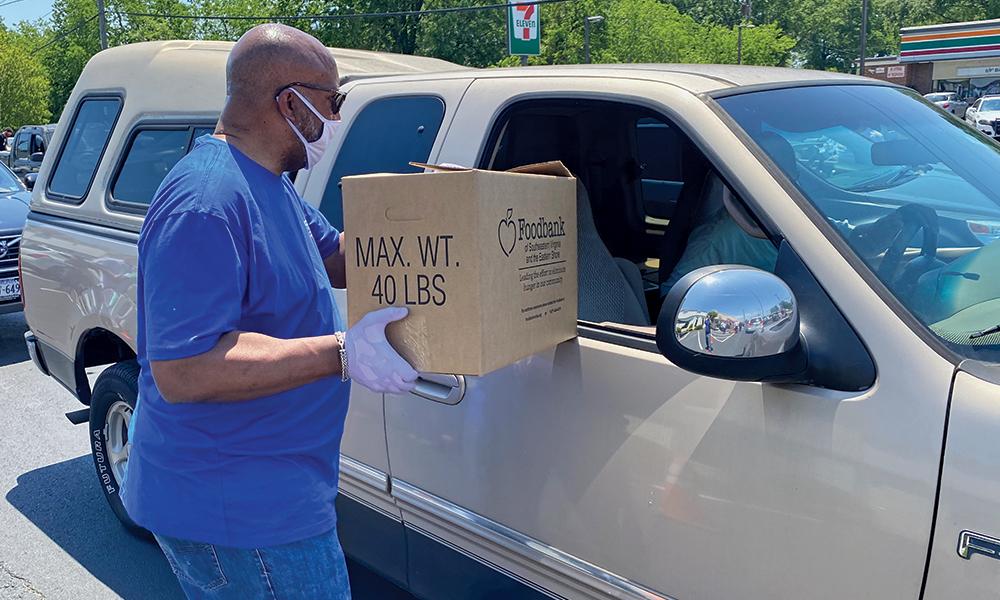
SUMMARY: Gilbert Bland (’77) is president and CEO of the Urban League of Hampton Roads and shares his expertise on no fewer than 11 boards of organizations. As founder and chairman of The GilJoy Group, he was the owner and operator of more than 70 Burger King, Pizza Hut and Mrs. Fields Cookies restaurants in Virginia, North Carolina, Pennsylvania and Washington, D.C., for 30 years. That combination of talent and experience makes a winning combination to benefit all Virginians.
By Janet Smith (’81)
Gilbert Bland (’77) epitomizes service-centered leadership on behalf of his fellow Virginians.
He is president and CEO of the Urban League of Hampton Roads and shares his expertise on no fewer than 11 boards of organizations ranging from Sentara Healthcare and the Virginia Chamber of Commerce to the Virginia Museum of Fine Arts and the Virginia African American Advisory Board, which he chairs. He’s also a former chairman of the State Council of Higher Education for Virginia and a former member of the JMU Foundation Board of Trustees.
“I’m known as a civic leader, but I’m also a businessman,” said Bland, who majored in accounting and economics at Madison College and earned an MBA from Atlanta University.
As founder and chairman of The GilJoy Group, he was the owner and operator of more than 70 Burger King, Pizza Hut and Mrs. Fields Cookies restaurants in Virginia, North Carolina, Pennsylvania and Washington, D.C., for 30 years. He’s proud that he and his wife, Joyce, employed more than 2,000 team members annually. The Blands are the parents of five children.
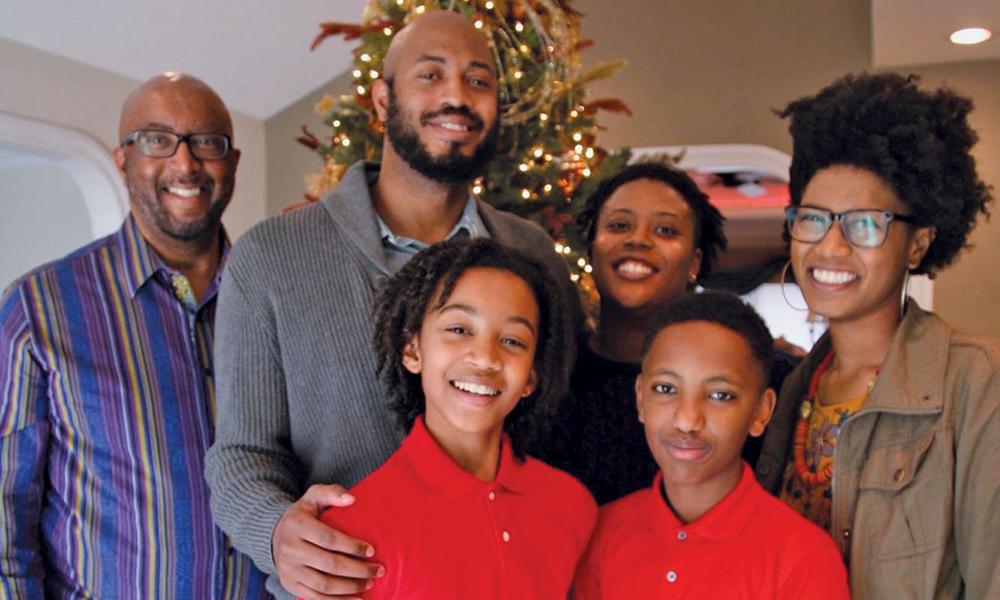
When the COVID-19 pandemic began affecting Virginians, Bland found yet another opportunity to lead through service. As a member of Sentara’s Health Equities Workgroup and with his familiarity of community needs from his work with the Urban League, Bland encouraged testing of underserved populations, including those in Harrisonburg.
In April, when testing supplies were severely limited and physical distancing was not broadly occurring, Bland called Art Dean (’93, ’99M), executive director of campus and community programs for access and inclusion at JMU and a member of the Board of Directors of Sentara RMH Medical Center, to help him connect with Harrisonburg officials. By early May, Sentara professionals were taking testing into the city’s minority neighborhoods. Two hundred people were tested as a result of the partnership among the Virginia Department of Health, Sentara Healthcare, Sentara RMH and the city.
“He’s always had a passion for helping JMU, especially in recruiting minority students and faculty and staff members,” said Dean, who has known Bland since he was chairman of SCHEV. “In this situation, he brought together Sentara, JMU and city leaders.”
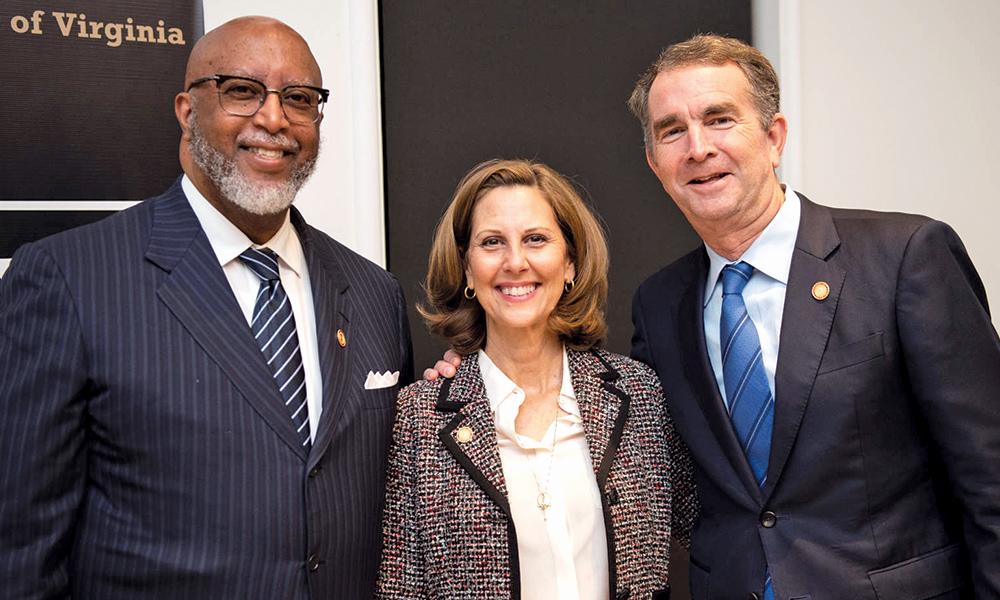
Bland was impressed with the cooperation among the parties required for Harrisonburg’s testing. “They truly care about their citizens and wanted to ensure that the testing was as broad as possible given the limited testing supplies at that time,” he said.
“We have tested everywhere Sentara has a hospital footprint,” Bland said. In addition to Harrisonburg, testing has occurred in Hampton Roads, Woodbridge, Halifax and Charlottesville.
“I borrow a well-worn phrase, ‘it takes a village,’ in my work,” Bland said. Leaders in specific communities must work together, he said, because there is often a fear of testing among African Americans and immigrants. Long-standing memories of historically bad medical practices, such as the Tuskegee Syphilis Study, remain. Accordingly, there was an intentional effort to build local coalitions of municipal, housing, civic and clergy leaders who had already earned the trust of the local citizenry, Bland said.
“I have a passion to assist and provide information as well as health care tools to the underserved communities,” he said. “We have a phrase—social determinants of health—that essentially means ‘What are the factors that will give you a better quality of life and a longer life?’ Eighty percent of the factors are nonclinical, such as where you were born, where you live, transportation, literacy and education issues. In underserved communities across the nation, there is a lifespan of 20 fewer years for these residents than other more affluent communities.”
Bland joined with Hampton Roads faith leaders to overcome distrust and to vouch for the importance of COVID-19 testing. Each community leader was recorded having a nasal swab test as part of a YouTube video to encourage testing.
Bland grew up in King George, Virginia, during the Jim Crow era, attending a segregated school until the fourth grade. His parents faced even deeper injustice. His father’s education ended after seventh grade. His mother, the valedictorian of her high school class, could only find work as a domestic servant.
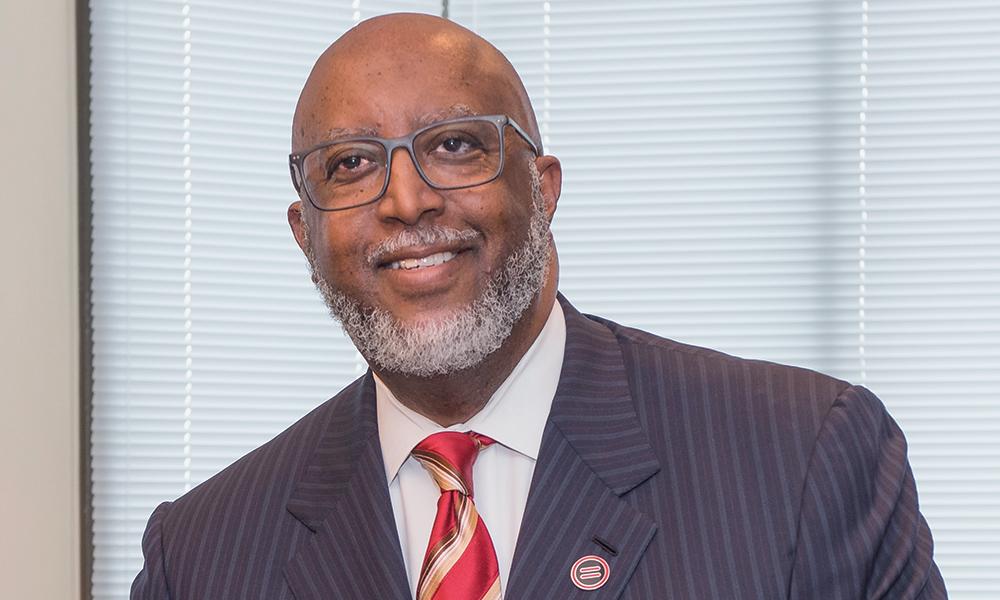
“I’ve seen what lack of opportunity can be and I’ve also witnessed the evolution in thinking and opportunities over my lifetime,” Bland said. “I want to help wherever I can to turn on a light for others to see that opportunities do exist. I believe [the biblical admonition] “to whom much is given, much is required.’ I was raised in that environment and remain in that belief.”
Both Bland and his sister graduated from college. While at Madison College, he was a charter member of Omicron Delta Epsilon, the international honor society for economics, helped establish the Black Student Alliance and ran track. “JMU has been very important in my life,” he said.
In 1992, Burger King Corp. wanted to endow a scholarship to honor Bland’s exemplary service to the global brand. He asked that JMU receive the endowment, and the Gilbert T. Bland/Burger King Hospitality/Tourism Management Scholarship was established.
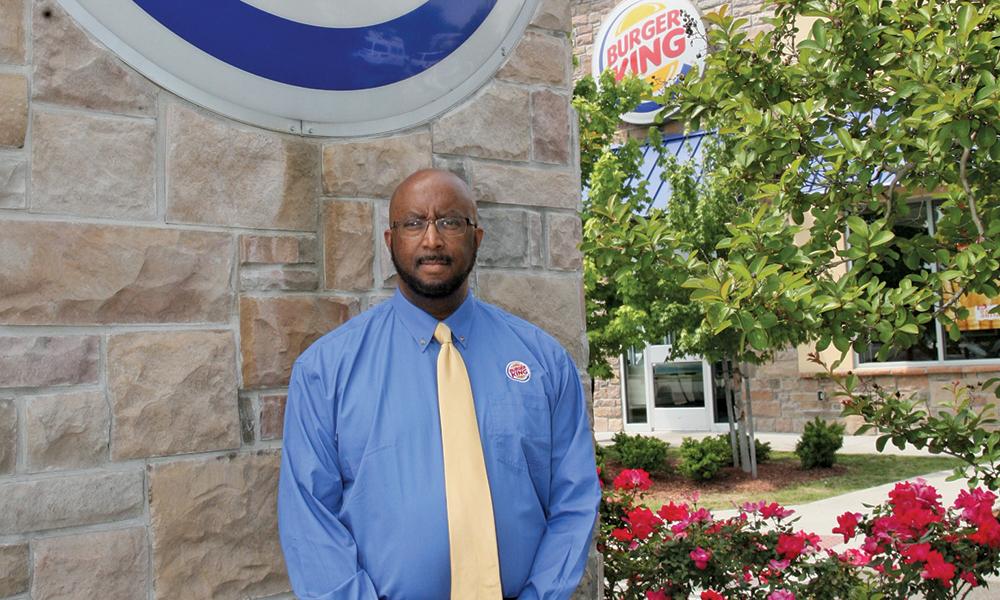
In 2013, he was honored by JMU’s College of Business with an Outstanding Alumnus Award. Two recent honors, induction into the Hampton Roads Business Hall of Fame and the Hampton Roads Lifetime Achievement Award for Volunteerism, are particularly meaningful to him.
In appreciation for his years of service in higher education, Longwood University awarded him an honorary doctorate in 2017. For the past seven years, Virginia Business magazine has recognized Bland as one of the 50 Most Influential Virginians.
Despite the harsh reality of fighting a brutal virus, Bland is hopeful. “The spirit of community cooperation has been broad, it’s been sincere and it’s been effective,” he said. “I am pleased beyond words at how the community has come together and indeed has operated as a village. We’re all interdependent on each other. It is my hope and my prayer that once this crisis subsides that the spirit of cooperation and recognition of the need for interdependence will continue.”

